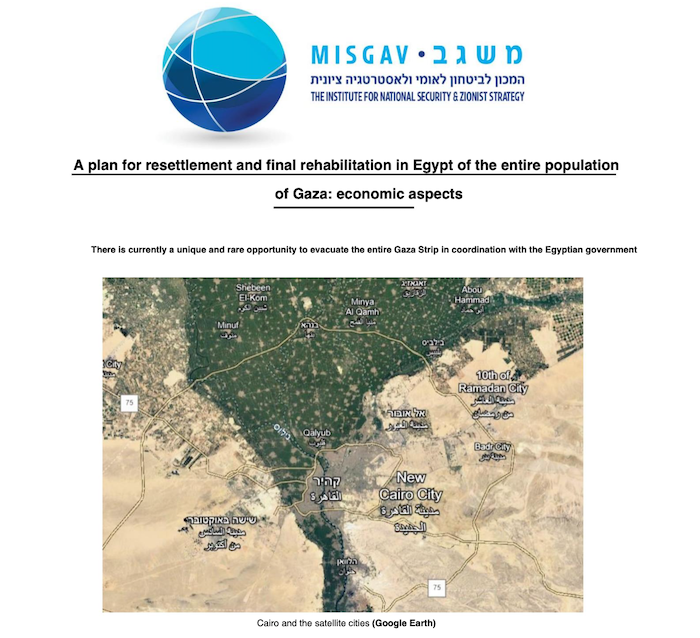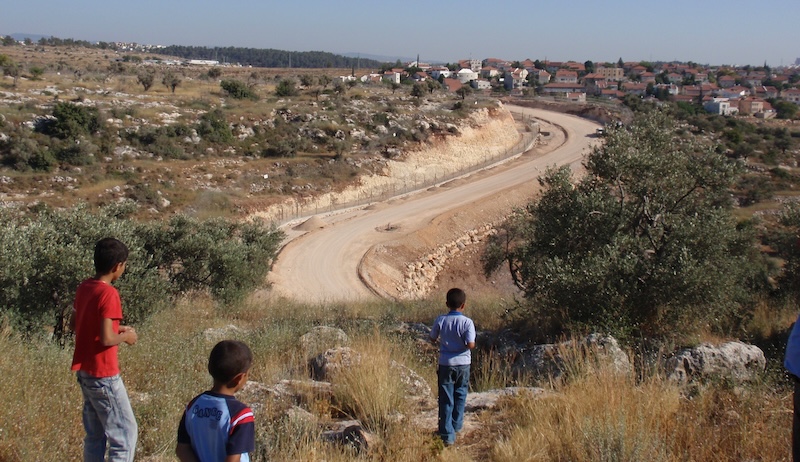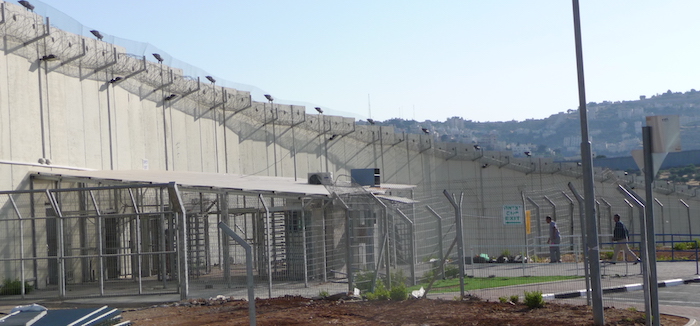For over a century Iran has experienced US meddling in its affairs and, for all our professed love of democracy, it was the US which ended Iranian democracy in 1955 when it installed a dictator. After Iran subsequently became an Islamic theocracy, the United States has spied on it, unleashed the Stuxnet computer virus on it (and half the world by accident), supported violent Iranian exile groups like the MEK, hit Iranian civilians with crippling sanctions, and parked aircraft carriers of Iran’s coastline at no greater a distance than from Falmouth to Oak Bluffs.
Most recently the United States unilaterially withdrew from the US-Iranian nuclear agreement, placed the Iranian military on a terrorist watchlist, and put economic sanctions on Iran’s Ayatollah. But let’s remember — Iran was not responsible for 911, nor has Iran been implicated in any act of terrorism in the United States. And yet American politicians of both parties file bill after bill, resolution after resolution, ratcheting up sanctions on Iranian civilians — all to stop supposed Iranian aggression. But who’s the aggressor here?
If there is a war — and it’s looking more likely every day — it won’t be over drones and shipping channels. It will be a long-desired war to ensure Israel’s status as the only nuclear superpower in the region, and a war to augment the power of the Saudi dictatorship. And, if Trump’s neoconservatives John Bolton, Elliott Abrams, and Michael Pompeo have their way, it will also be another war to effect regime change in the Middle East. Because the United States, always playing God more than policeman, seeks to make the world in its own image.
The War in Vietnam, the Iraq debacle, and the Spanish-American war were only possible because a credulous American public allowed itself to be deceived by nationalism, propaganda, and outright lies. U.S. claims of Iranian attacks on marine vessels in the Persian Gulf are the just the latest justifications for war.
Neoconservatives have convinced Republicans that invading Iran is one way to make America Great Again, and that an American invasion would be a “slam dunk.” Arkansas Republican Senator Tom Cotton thinks it wouldn’t take much to defeat Iran — “two strikes, the first strike and the last strike.” But an entire generation has grown up since the first Gulf War and the US is still not out of Iraq, a much smaller country than Iran. After hundreds of thousands killed, and trillions of dollars squandered, the US is also still in Afghanistan propping up a puppet regime.
Cooler and better-informed heads remind us that Iran is 3.7 times the size of Iraq — 1.5 million square miles, almost the size of Alaska, with 3 times the population of Iraq — 81 million people. Iran can also mobilize 1.5 million paramilitary forces and 500,000 active duty military. And while the Gulf War “coalition” could count on NATO allies, Europe is now skeptical of another American war and is still party to the nuclear agreement the U.S. unilaterally dropped out of.
Understanding the conflict with Iran is to understand the history of American Imperialism and military adventurism. While Native American genocide, slavery, colonialism, Manifest Destiny and the Monroe Doctrine all had roots of U.S. Imperialism, the United States embarked upon Imperialism with a vengeance during the Mexican-American and Spanish-American wars. The American SouthWest, Puerto Rico, Cuba, the Philippines, and Guam were all taken from Spain and Mexico. Several islands are still colonies after more than a century.
The modern period of American Imperialism began after the US emerged relatively unscathed by World War II. The United States regarded the Soviet Union as its enemy in the post-war period, and the profitable machinery of the military-industrial complex, which Eisenhower warned of, kept churning. The Cold War was the result of a combination of prudence, paranoia, ideological zealotry, and capitalist profit-taking.
1950
In 1950 the National Security Council circulated a document, NSC-68, which made its recommendations to President Harry Truman. NSC-68 lays out a view of a bi-polar world in which the U.S. and the USSR compete for power. It establishes “containment” of the Soviet Union as its primary goal, which requires fostering “the seeds of destruction within the Soviet system” and requires becoming a nuclear superpower “in dependable combination with other likeminded nations.”
1960
Starting in roughly 1960, Israeli nuclear technology was acquired by stealth and back-door help from Western nations, including the U.S., France, Norway, and Germany. Neither Israel nor its colonial allies has ever acknowledged its nuclear weapons program.
The first nuclear reactor in the Middle East was Israel’s Dimona reactor
https://www.politico.com/magazine/story/2015/04/israel-nuclear-weapons-117014?o=3
“three successive U.S. administrations–under presidents Kennedy, Lyndon Johnson and Richard Nixon–would have to deal with it as well. Kennedy chose the toughest path of struggle and confrontation in his effort to check the program; Johnson realized that the U.S. had limited leverage on the issue and planted the seeds of compromise and looked the other way; finally, in a bargain with Prime Minister Golda Meir, Nixon accepted the Israel’s de facto nuclear status as long as it stayed secret–a controversial and unacknowledged deal that remains in place effectively through the current day.”
1965
In 1986, Mordechai Vanunu, a disgruntled worker with Israel’s nuclear program, blew the whistle on the program. In 2014, former member of the Knesset, Avraham Burg, blew the whistle on both Israel’s nukes and chemical weapons. When reporter Helen Thomas asked Barak Obama if Israel had nukes, he dodged the question and refused to “speculate.” Experts believe Israel now has between 80 to 100 nukes.
1981
One question not frequently asked is: what was the U.S. involvement in Israel’s 1981 bombing of Iraq’s Osirak reactor and Israel’s 2007 bombing of Syria’s al-Kibar reactor? If past is prologue, then it might be useful to examine the history. A “senior US intelligence officer” testified to Congress in 2008 on American participation of the al-Kibar bombing:
“One of the things that I’m sure also people are wondering is whether there was any discussion between us and the Israelis about policy options and how to respond to these facts. We did discuss policy options with Israel. Israel considered a Syrian nuclear capability to be an existential threat to the state of Israel. After these discussions, at the end of the day Israel made its own decision to take action. It did so without any green light from us – so-called ‘green light’ from us; none was asked for, none was given. […] We understand the Israeli action. We believe this clandestine reactor was a threat to regional peace and security, and we have stated before that we cannot allow the world’s most dangerous regimes to acquire the world’s most dangerous weapons.”
Wink, wink, nudge, nudge.
The facility had been under watch by the United States since 2003. Without having to read between the lines too much, it is clear that the bombing of the al-Kibar reactor was done with the assistance, permission, advance knowledge, and blessings of the Bush administration, which saw the reactor as an effort by two of Bush’s “axes of evil” to threaten “regional peace and security.”
2007 – October
U.S. plans to bomb Iran (Biden no, Clinton yes)
https://www.nytimes.com/2007/10/10/opinion/10dowd.html
2008 – June
A year ago Israel conducted war games U.S. officials said were intended to send Iran a threatening message. The BBC reported the same story as “Israelis ‘rehearse Iran Attack’.”
2008 – August
Washington Post columnist David Ignatius dismissed the possibility of an Israeli attack on Iran. But, like a bad penny, it’s a story that keeps coming back.
2009 – February
In February Reuters reported that Israel claimed that time was running out and it had only about another year to attack Iran.
2009 – May
In May Benjamin Netanyahu and Ehud Barak offered to give up settlement outposts in exchange for the U.S. letting Israel “focus its attention on the Iranian nuclear threat”. Make your own inferences about what that means.
Israel offers to trade settlements for U.S. permission to bomb Iran
Netanyahu: Outposts in exchange for Iran
2009 – June
Pundit M. J. Rosenberg’s last posting on Talking Points warned that the Fall would bring renewed calls for liberals to support a military attack on Iran – not necessarily a U.S. attack, but one by Israel. Rosenberg pointed to hasbara efforts by Jewish organizations to soften up public acceptance of an Israeli military strike on Iran:
Anyway, this fall will be critical. While we’re sweating the health care issue, the usual suspects will be ignoring all that and trying hard to set us up for a third war in the Muslim world. And, I hear, that it will be a bipartisan coalition of Democrats and Republicans who will join in opposition to President Obama to sneak this one by us. Why not? Both parties want to please the pro-war crowd in advance of the 2010 elections. Watch your favorite liberal. I expect that if you pay attention, you will hear things that you haven’t heard come out of a Democrat’s mouth since the run-up to Iraq. […] If we go to war or give Israel a permission slip, it will be the Democrats who bear prime responsibility. Pay attention.
AIPAC statements, the view from Israel that contradicts the State Department’s assessment of Iran’s nuclear readiness, the American Jewish Committee, the Zionist Organization of America, the World Jewish Congress, the Conference of Presidents of Major Jewish Organizations, and a poll commissioned by the Israel Project which purports to show a massive increase in public support for a specifically Jewish state and concern over Iran’s nuclear program. But not a peep about Israel’s own nuclear program.
Participating in, or permitting, an attack on Iran would have frightful consequences. The Christian Science Monitor ran an article last June entitled ‘How Iran would retaliate if it comes to war.’ The Atlantic Monthly ran one titled ‘What if the Israelis bomb Iran’ War colleges, foreign policy wonks, and even Fleet Street and Wall Street have begun speculating on the results of such an attack.
American Zionist organizations may resent the claim that Jews are being unfairly associated with neoconservative politics and Israel advocacy at odds with American interests. But if this were true, then they would stop wallowing in that swamp and dragging American Jews, whom they claim to represent, into the muck with them.
2009 – July
In July, the Jerusalem Post reported that a deal between European nations and Israel was evolving, which would permit Israel to attack Iran in exchange for unspecified “concessions in peace negotiations with the Palestinians and Arab neighbors.”
2009 – September
Neoconservatives and pro-Israel organizations and ideologues have been calling lately for military action against Iran. House Democrats with close ties to Israel have also been making the same noises. The Conference of Presidents of Major Jewish Organizations organized a call for rabbis to condemn Iran from the pulpit during the High Holy Days. And now Obama’s Defense Secretary is trying to sell war on Iran – to the Arab world.
It sure looks like we’re being prepped for another war.
The Jerusalem Post, in an article titled “Arab world should arm against Iran,” quotes US Defense Secretary Robert Gates calling for Arab nations to beef-up their militaries. The article is based on an interview with Al Jazeera’s Abderrahim Foukara, which can be viewed below. According to Gates, large weapons purchases are already being negotiated with the United States.
In the interview, Foukara asks Gates about the double-standard of asking Iran to give up nuclear research while never questioning Israel’s nuclear program. Gates responds:
First of all, it’s the Iranian leadership that has said it wants to wipe Israel off the face of the earth. Those threats have not been made in the other direction. It is the Iranian government that is in violation of multiple UN Security Council resolutions with respect to these programmes, so focus needs to be on the country that is feuding the will of the international community and the United Nations.
There’s so much wrong in Gates’ response that it requires some comment. First, I am still looking for a credible translation of an actual threat by Iran against Israel. Neoconservative and pro-Israel warmongers apparently found what they were looking for in some flowery Farsi. But in terms of violations of UN resolutions, Israel is the clear winner. Then Gates has the threats backwards. Israel’s war games last year, this year’s demonstrations of Israeli naval force in the Suez Canal, and countless Israeli speculations of the “best time to bomb” all convey the impression that, if anyone is about to become an aggressor, it’s Israel.
This is a very troubling interview because it demonstrates that the Obama administration itself, as much as any lobbyist or group of pro-Israel House Democrats, is also starting the beat the drum of war.
plugin:youtube
Here’s an excerpt from the interview:
FOUKARA: The issue of Iran and Israel is obviously rattling a lot of countries in the region, the Israelis, the Gulf states, who are thinking about buying more and more weapons, and indeed there has been some sales authorised by the United States. Some estimates put the weapons packages to the Gulf states and Israel at about $100bn. How much substance is there to that?
GATES: That figure sounds very high to me. But I think there’s a central question or a central point here to be made and it has to do both with our friends and allies in the region, our Arab allies, as well as the Iranian nuclear programme, and that is one of the pathways, to get the Iranians to change their approach on the nuclear issue, is to persuade them that moving down that path will actually jeopardise their security, not enhance it.
So the more that our Arab friends and allies can straighten their security capabilities, the more they can strengthen their co-operation, both with each other and with us, I think sends the signal to the Iranians that this path they’re on is not going to advance Iranian security but in fact could weaken it.
So that’s one of the reasons why I think our relationship with these countries and our security co-operation with them is so important.
FOUKARA: I mentioned $100bn and you said that doesn’t sound right to you. What does sound right to you as a figure?
GATES: I honestly don’t know.
FOUKARA: But there are a lot of weapons being asked for by the countries in the region?
GATES: We have a very broad foreign military sales programme and obviously with most of our friends and allies out there, but the arrangements that are being negotiated right now, I just honestly don’t know the accumulated total.
FOUKARA: You’re asking the Iranians to give up their intentions to build nuclear weapons. They are saying they’re not building nuclear weapons. On the other hand, a lot of people in the region feel that you know that the Israelis do have nuclear weapons and they say why doesn’t the West start with Israel, which is known to possess nuclear weapons rather than with the Iranians, who are suspected of having them. What do you say to that argument?
GATES: First of all, it’s the Iranian leadership that has said it wants to wipe Israel off the face of the earth. Those threats have not been made in the other direction. It is the Iranian government that is in violation of multiple UN Security Council resolutions with respect to these programmes, so focus needs to be on the country that is feuding the will of the international community and the United Nations.
FOUKARA: But you decided that the rhetoric of the Iranians reflects the reality of what’s going on in Iran in terms of nuclear weapons. Isn’t that a leap of faith?
GATES: Well, we obviously have information in terms of what the Iranians are doing. We also have what the Iranians themselves have said, so we only are taking them at their word.
FOUKARA: So you know for sure that they are working on a nuclear bomb?
GATES: I would not go that far but clearly they have elements of their nuclear programme that are in violation of UN Security Council resolutions.
We want them to adhere to these resolutions and we are willing to acknowledge the right of the Iranian government and the Iranian people to have a peaceful nuclear programme if it is intended for the production of electric power so on. What is central, then, is trying to persuade the Iranians to agree to that and then to verification procedures under the IAEA [International Atomic Energy Agency].
That gives us confidence that it is indeed a peaceful nuclear programme and not a weaponisation programme.
The truth of the matter is that, if Iran proceeds with a nuclear weapons programme it may well spark and arms race, a real arms race, and potentially a nuclear arms race in the entire region.
So it is in the interest of all countries for Iran to agree to arrangements that allow a peaceful nuclear programme and give the international community confidence that’s all they’re doing.
FOUKARA: But the Obama administration seems to have a difficult circle to square because on one hand they’re saying that they want improved relations with the Muslim world. On the other hand, any pressure on Iran, is seen by people in the Muslim world as an indication the US is not genuine in wanting to improve those relations because many Muslims say Israel has nuclear weapons, and the US is not doing anything about it.
GATES: The focus is on which country is in violation of the UN Security Council resolutions. The pressure on Iran is simply to be a good member of the international community.
The neighbours around Iran, our Arab friends and allies, are concerned about what is going on in Iran, and not just the governments.
So the question is how does Iran become a member in good standing of the international community. That’s in the interest of everybody.
2009 – September – more
Zionist organizations in America are on the warpath. A war with Iran over nuclear exclusivity. The American Jewish Committee released a video on Youtube today entitled “This is the button,” inexplicably accompanied by lounge music, showing a toy truck followed by a terrorist explosion in Argentina attributed to Iran. Then the image of a child’s toy truck is followed by video footage of Iranian thugs on motorbikes terrorizing demonstrators in Teheran. Then videos of hangings of adulterers, and finally the words “This is the button” followed by another image “You don’t want to see what Iran does with the button.”
Clearly any nation that would murder civilians, suppress dissent, or make a mockery of its legal system cannot be trusted to have nuclear weapons. I certainly agree, but unfortunately these characteristics describe every nation that already possesses nukes, including Israel.
The AJC goes on to inform us in its online petition to Congress:
“With enough low-enriched uranium to build a nuclear weapon, and more centrifuges spinning each day, Iran is dangerously close to crossing the nuclear threshold. A nuclear Iran would particularly threaten Israel and our moderate Arab allies, and would destabilize the Middle East and threaten the security of the entire globe.”
“The security of the entire globe.” Why is hasbara so melodramatic? A nuclear Iran would indeed spell the last days of Israel’s nuclear hegemony but, according to Ehud Barak last week, “Israel is strong, I don’t see anyone who could pose an existential threat.” The Iran War will be all about Israel’s ability to remain the only nuclear power in the immediate region.
The nation’s synagogues have also apparently been enlisted in the Iran War by former American Michael Oren, now the Israeli Ambassador to the United States. Oren sent a letter to most American congregations, including mine, to be read during services at Rosh Hashanah. The instructions read:
“We are facing a critical juncture in our history. The Jewish community must confront this unprecedented threat before it is too late. I urge you as leaders of the Jewish community to impress this situation on your congregations. It is imperative to act now, at the start of a new year, and to join our voices in doing what [is] absolutely necessary to stop the Iranian nuclear threat.”
Meanwhile, hardly a peep from the mainstream media on Israel’s nuclear weapons program, which now has an estimated 150 to 400 nuclear weapons. The AJC letter sounds like we’d all be doing the Saudis and Egyptians a favor by defending Israeli nuclear hegemony. But those familiar with Israel’s history of violence are buying none of it. Egypt, for one, has categorically rejected this notion:
“The Middle East does not need any nuclear powers, be they Iran or Israel – what we need is peace, security, stability and development.”
What Israel is doing now in Congress and within the Jewish community is reckless: drumming up support for bombing Iran and laying the groundwork for American military and economic support for this needless piece of aggression. One thing the United States does not need right now, and cannot afford, is a third war in the Middle East. If Israel wants to initiate the Iran War, it should be prepared to accept all costs and all consequences itself.
If nuclear non-proliferation is truly an American goal, then a nuclear-free Middle East should be the objective. And that includes Israel. Selectively choosing countries for the nuclear club, particularly those with a history of violence in the region, is a bad idea. And going to war to defend a foreign nation’s exclusive nuclear capabilities is not only a bad idea, it’s a dangerous game that risks pulling us into a third war.
2009 – September – even more
Shimon Peres, in his letter to the Diaspora, asks Jews to:
- seek peace, even as he insults Palestinians
- fight for Israeli nuclear hegemony
- oppose BDS by investing in Israel
- keep indoctrinating your children
- stand united with Israel, quoting scripture for political ends
This is all increasingly a tough sell from a state that consistently betrays Jewish values while appealing to them:
Message from the President of the State of Israel, HE Shimon Peres, to the Jewish communities in the Diaspora, on the occasion of the Jewish New Year 5770
Hopefully, the coming New Year will be marked by the realization of our aspirations: attaining peace, increasing security, promoting economic growth, safeguarding the future of the Jewish people and strengthening the ties between Israel and our Jewish brothers in the Diaspora.
The opportunity to attain peace is beckoning, and must be seized, even at the cost of painful concessions. The Arab world’s intractable position to say “No” to negotiations, “No” to recognition of Israel and “No” to peace, has today been replaced by the three-fold “Yes” to the Saudi Initiative. The international community is keen to support endeavors to move the peace process forward, and I am confident that, with concerted efforts, the vision of a comprehensive peace can be realized. This will create stability, tranquility, security and prosperity for our children and their children after them.
Nuclear arms in the possession of extremist fundamentalist hands pose a danger to the whole of humanity and not only to Israel. A broad and consolidated stand by the international community against Iran is called for. I pray that this terrible threat be removed from all of humanity and that the world may enjoy a new era of peace and security.
Israel’s economy is showing the first sparks of recovery from the global economic crisis. The macro-economic signs are promising, and these indications are reflected in a growing scope of investments, the hi-tech industry is reviving and start-up companies are again sprouting. This is the time to seize the opportunity. This is the time to invest in Israel in fields such as alternative energy, water production, homeland security infrastructures, educational and learning-related tools, and in the stem-cell industry. This constitutes the future and it is in our hands.
It is vital to build with our brethren in the Diaspora ties based on solid foundations of partnership and education. Indeed, the role of Jewish education in the Diaspora cannot be overestimated. It serves as the very building-blocks of the bridges that connect the Jewish communities abroad and Israel. It serves as the terms of engagement between the young generation of Jewish youth and our nation and as the stepping stones to a greater awareness of the significance of Israel-Diaspora relations. It will serve to preserve our rich heritage and traditions.
The spirit of partnership must be enhanced in every area of Israel-Diaspora relations. We face dramatic challenges, which again underscore the necessity to stand united in moments of trial, responsible one for the other, as dictated by our Prophets. Indeed, a threat to the well-being of Jewish communities in the world equates a threat to Israel itself, and the fate of Diaspora Jewry is at the very core of Israel’s heart.
Dear Friends, as we embark on this New Year, I want to convey my heartfelt good wishes to all of the Jewish people in the Diaspora, in the hope that it will be a year of joy and good tidings to all.
And let us pray for the safe return home of the hostages and missing soldiers.
Shana Tova U’Metukah,
Shimon Peres
2009 – September – much more
The mainstream media and right-wing blogosphere is filled with strange theories about Iranian plans to destroy Jews in some variant of a nuclear “Final Solution.” What’s frightening is that the same people who spread this nonsense are the ones that got us into Iraq. And the ones who believe these lies are the same ones who claimed that the Iraqis were responsible for 9/11. And when we listen to a Khadafy or an Ahmadinejad at the UN, their words make no sense to Western diplomats — if they stay to listen to these speeches at all.
Lost amid the religious verbiage, hate of Israel’s Apartheid form of government, posturing for the rest of the Muslim world, and their downright quirkiness, both Khadafy and Ahmadinijad have nevertheless been delivering a consistent, coherent message to Western nations of the Security Council: Your time is up and we’re tired of playing by your rules. For its part, the West has also been delivering a message: Nothing has changed. The world is still ours. This was certainly the case in New York and Pittsburgh this week.
In his rambling, extemporaneous speech at the UN, Moammar Khadafy slammed the notion of privileged Western nations leading the Security Council:
[The Security Council] is political feudalism for those who have a permanent seat. […] It should not be called the Security Council, it should be called the terror council. […] Permanent is something for God only. We are not fools to give the power of veto to great powers so they can use us and treat us as second-class citizens.
An even more reviled speaker in Western eyes, Mahmoud Ahmadinijad, made the same points more lucidly in his speech:
It is not acceptable that the United Nations and the Security Council, whose decisions must represent all nations and governments by the application of the most democratic methods in their decision making processes, be dominated by a few governments and serve their interests. In a world where cultures, thoughts and public opinions should be the determining factors, the continuation of the present situation is impossible, and fundamental changes seem to be unavoidable.
[…] Marxism is gone. It is now history. The expansionist Capitalism will certainly have the same fate. […] We must all remain vigilant to prevent the pursuit of colonialist, discriminatory and inhuman goals under the cover of the slogans for change and in new formats. The world needs to undergo fundamental changes and all must engage collectively to make them happen in the right direction, and through such efforts no one and no government would consider itself an exception to change or superior to others and try to impose its will on others by proclaiming world leadership.
Ahmadinejad took aim at Israel, likening the slaughter of civilians in Gaza to “genocide”:
How can the crimes of the occupiers against defenseless women and children and destruction of their homes, farms, hospitals and schools be supported unconditionally by certain governments, and at the same time, the oppressed men and women be subject to genocide and heaviest economic blockade being denied of their basic needs, food, water and medicine.
This was apparently too much for France and the United States to bear. “It is disappointing that Mr. Ahmadinejad has once again chosen to espouse hateful, offensive and anti-Semitic rhetoric,” Mark Kornblau, a spokesman to the US mission to the UN, said in a statement. Right on queue, 13 Western nations then walked out of a speech that covered much more ground than Israel.
Between New York and Pittsburgh, backroom meetings at the Waldorf-Astoria involving the U.S., Britain, France, Germany, Russia and Israel, the Obama administration has been busy. Busy swatting down the Goldstone report, abandoning serious demands on settlements, and engaging in war frenzy to either impose more sanctions on Iran, or support bombing it, on behalf of Israel. When Obama came to the podium, he enumerated four main themes in a “new” American relationship to the rest of the world:
First, we must stop the spread of nuclear weapons, and seek the goal of a world without them. […] Because a world in which IAEA inspections are avoided and the United Nation’s demands are ignored will leave all people less safe, and all nations less secure.
That brings me to the second pillar for our future: the pursuit of peace. […] That effort must begin with an unshakeable determination that the murder of innocent men, women and children will never be tolerated.
Third, we must recognize that in the 21st century, there will be no peace unless we take responsibility for the preservation of our planet. […] We will press ahead with deep cuts in emissions to reach the goals that we set for 2020, and eventually 2050.
And this leads me to the final pillar that must fortify our future: a global economy that advances opportunity for all people. […] In Pittsburgh, we will work with the world’s largest economies to chart a course for growth that is balanced and sustained.
Yet when we parse the Obamaspeak and compare it to the President’s actual actions this week and this month, all the flowery speech rings hollow. Nothing has changed. The world order will remain the same.
Rather than the global or regional non-proliferation he spoke of, Obama’s actual non-proliferation consists of: No nukes for Iran. North Korea, a much more terrifying nuclear power ruled by an unhinged despot who has actually killed millions of his own citizens and whose nation has already tested nuclear weapons, merits a mere “tsk tsk” from the President. While Israel and the United States have staged simulated war exercises against Iran, Iran has not threatened Israel and no Iranian weapons testing has been detected. But Israel and/or the US are on the verge of attacking Iran militarily solely because Israel, our proxy in the region, fears losing its nuclear monopoly.
The pursuit of peace, particularly the claim that the murder of innocent civilians will never be tolerated, becomes another one of the President’s hollow high school valedictory speeches when measured against his own administration’s promise to torpedo the UN’s Goldstone report and prevent Israeli war crime charges from ever reaching the Hague. Of course, the United States could someday find itself in the same position as Israel, given Abu Ghraib, Guantanamo, illegal renditions, assassinations, waterboarding, drone bombings, and the use of mercenaries in Iraq, Pakistan, Afghanistan, and elsewhere. So perhaps avoiding the Hague is just American pragmatism. But for a country winding up one war in Iraq, escalating another in Afghanistan, and rattling drums for a third in Iran, the “pursuit of peace” is Orwellian Newspeak.
The last two themes, global warming and globalism, don’t inspire confidence either. Neither the President nor I will be around in 2050 when emission levels are low enough to do any good, and I wonder how much of the planet will be. As for global prosperity, Obama seems to offer a view that opportunity in the developing countries will be linked to sustained, balanced growth in the traditional industrialized nations. Did no one else hear anything new? Globalism and Capitalism have failed. Oratory won’t change the facts.
Even though we might not share the Libyan president’s taste in clothing or the Iranian president’s mock Holocaust denial, you’ve got to admit: the UN Security Council is an anachronistic body. It’s 1948 in a time warp. It still consists of the colonial powers who made such a mess of the Middle East right after WW2, and they’re still trying to set the rules, still reminding everyone that the Security Council is theirs, and that they control memberships in the nuclear club. And, with the exception of China, an old White Boy’s club at that.
But out with the old and in with the new. Two of the permanent members, France and Britain (each scarcely over 60 million) have insignificant populations compared to Indonesia or Pakistan (both Muslim states), India, Bangladesh, Nigeria, Japan, Mexico, or Brazil — all of which have populations over 100 million and two of which are also nuclear states. At least two of these would be better candidates for permanent memberships on the Security Council.
So Khadafy and Ahmadinejad’s arguments really shouldn’t come as a surprise in a world that has changed greatly since 1948. These two leaders may not be the most accessible to Westerners, but they have been echoing the sentiments of many of the 187 other nations of the UN whose views are routinely ignored or vetoed by present members of the Security Council.
The Goldstone report is a case in point.
The report, commissioned by the UN, condemns Israeli and Hamas crimes against civilians during Operation Cast Lead last winter. Aside from various ad hominem attacks on Judge Goldstone, himself a Zionist Jew, no one has seriously attacked its actual findings. The only issue that the US, France, and Britain have with the report is that the investigation was not initiated with their blessings. Hence, in UN Ambassador Susan Rice’s words: no mandate. Apparently the rest of the world did not agree. Yet the US will very likely veto the transmission of the findings to the Hague.
Iran’s nuclear program also illustrates the same point.
In the Sixties a handful of Western nations were instrumental in providing Israel with nuclear weapons: the US, France, and Norway all played various parts. The United States has played a game for decades of pretending Israel has no nuclear weapons, and the other members of the Security Council have played along. When the Shah of Iran was in power, the United States and Germany actually helped Iran develop nuclear power. But now with an Iranian government that no longer takes orders from the West, the rules were simply changed.
When the world is yours, you can do what you want.
2009 – December
Michael Freund (American-born rightwing Israeli who supports expansionism and who worked as Netanyahu’s propagandist) calls for bombing Iran
https://www.israelnationalnews.com/Blogs/Message.aspx/4008
2010 – May
Elliott Abrams calls for crippling sanctions on Iran
https://www.tabletmag.com/scroll/32802/how-do-you-solve-a-problem-like-iran
https://www.thenation.com/article/an-actual-american-war-criminal-may-become-our-second-ranking-diplomat/
https://inthesetimes.com/article/21758/war-criminal-elliott-abrams-nicaragua-venezuela-maduro-trump-ilhan-omar
2010 – June
J Street joined with AIPAC and broke with Americans for Peace Now in applauding new sanctions on Iran. To its credit, J Street made one distinction from AIPAC — in calling for continued diplomacy and warning against war:
We believe that a dual track approach that combines meaningful diplomatic engagement with broad-based sanctions is necessary to convince Iran to clarify its nuclear intentions. We commend the President for his efforts in strengthening the resolve of the international community on Iran. […]
We reiterate that nothing in this bill should be taken as authorizing or encouraging the use of military force against Iran. We are opposed to the use of military force by Israel or the United States against Iran.
While J Street joined with AIPAC in welcoming the sanctions, it broke with APN and Gush Shalom. Americans for Peace Now, on whose board J Street’s Jeremy Ben Ami also sits, condemned the sanctions. APN’s Deborah Lee issued a statement which contained this critique of sanctions — any sanctions:
APN’s core concern about this bill remains unchanged: imposing sanctions the goal of which is to ‘cripple’ the civilian economy and inflict misery on the population — in the hopes that this population will rise up against its government — is a flawed and in all likelihood counterproductive approach. It is an approach that has failed for decades in Iran. It failed in Iraq and Haiti. It has failed in Cuba and North Korea. And it is an approach that only last week Israel abandoned in Gaza, recognizing that squeezing the population of Gaza with a blockade on civilian goods had not only failed to force Hamas out of power, but had enabled Hamas (and the world) to blame Israel for all the misery the people of Gaza were facing. It took Israel three years to recognize the error of this approach. It is regrettable that Congress did not draw the obvious lesson from these experiences.
While J Street has taken it on the chin from mainstream Jewish organizations and the Israeli Lobby for its unwavering support of a Two State solution, many of its recent positions — endorsing supplemental military aid for Israel and sanctions on Iran — seem designed to blunt right-wing criticisms and win supposedly “moderate” Jewish support.
J Street today applauded increased sanctions on Iran at the UN. An enrichment processing proposal brokered by Turkey and backed by Brazil, which had previously been acceptable to the United States, was rejected by the US in backing Israel’s demands for sanctions on Iran. A J Street press release supported the move:
J Street welcomes the passage of enhanced multilateral and broad-based sanctions on Iran at the United Nations Security Council today.
This vote would not have been possible without the tireless diplomatic efforts of the Obama Administration. We commend President Obama and his team for their effort and this step in the right direction, and urge them to continue employing a dual track approach – meaningful engagement plus multilateral sanctions – to convince Iran to change course.
Today, the Government of Iran hears a clear message from the international community that there are real consequences to continued obfuscation, delay, and intransigence over its nuclear program, as well as real benefits should they fully address international concerns.
We expect the Iranian regime to immediately make clear it is not pursuing nuclear weapons, to submit to international inspections, and to end its support for groups that use violence and terror against Israel. Such action will put Iran on the road to reintegration into the international community.
These sanctions are particularly stupid because there was an opportunity to try a reprocessing scheme the US had once supported and to insist on monitoring access. Teheran had warned that the offer would be off the table if sanctions were imposed, and this now gives them a domestic popularity boost in standing up to the United States. There will also now be no monitoring, and Iran will have scored points for its home team.
The imposition of sanctions, however ineffective they are expected to be, coupled with the attack on the Mavi Marmara, is also a setback for NATO ally Turkey and a gain for Israel. A message certainly not lost on certain Middle Eastern and new European allies, these sanctions make it crystal clear that the United States is willing to betray NATO allies and friends when it comes to Israel. Stephen Walt calls it right when he cites Stephen Cook of the Council of Foreign Relations complaining about how Turkey needs to be “kept in its lane.” We can’t have just anybody running around being a regional power broker in the Middle East. There’s already a reserved seat.
This move is also exceptionally misguided because it further complicates the United States’ relations with other nations in the Middle East. But the president, the State Department, and apparently J Street, all continue to see the world as it was during the Bush administration. The US with the help of Israel will continue to try to project its power in the Middle East – at least for a few more years. Other regional players need not apply for the job.
2010 – August
In 2010 foreign policy wonks went into overdrive dissecting the musings of Jeffrey Goldberg’s article in the Atlantic Monthly on Israel’s likely future attack on Iran. Goldberg’s career has been notable as a shill for the IDF (he was also a former Israeli solder) and he was also a notorious proponent of the Iraq war, so Goldberg’s conclusions on the inevitability of such an attack were not surprising. But neither is the fact that so many of his sources were anonymous. The piece was a major piece of Israeli propaganda masquerading as a liberal essay in a liberal US publication. On page 63 of the magazine’s print edition there was an obligatory picture of IDF jets flying above Auschwitz as if to highlight the “reasons” for Israel’s posture.
It’s all about the U.S. interest in Israel’s nuclear hegemony.
Goldberg is correct only in his conclusion that the US will assist Israel with the attack – not for all the Israeli propaganda reasons he enumerates.
Israel’s reason is not to protect itself from an “existential threat” but to continue to amass armaments to delay the inevitable end of its Occupation of Palestine and create more “facts on the ground.”
The U.S. reason is not to preserve regional peace and security but to simply ensure continued nuclear hegemony by its proxy, Israel.
If and when the US becomes involved in the bombing of Iran – even if only by logistical support, looking the other way while Israeli F16s fly over Iraq, or providing the bunker-buster bombs Israel will use – it will not be an unwilling participant in the next war, its fourth and possibly a World War.
2010 – August – more/worse
While foreign policy junkies were busy parsing Jeffrey Goldberg’s overhyped article in the Atlantic on Israel’s likely future attack on Iran, another article in the same issue of the Atlantic by Robert D. Kaplan attempted to repurpose one of Henry Kissinger’s old Cold War theories for use with Iran – specifically, that the only way to deal with upstart revolutionary nations like Iran is to be willing to engage with them in limited nuclear war. Kaplan writes:
We must be more willing, not only to accept the prospect of limited war but, as Kissinger does in his book of a half century ago, to accept the prospect of a limited nuclear war between states.
What is he saying? That, should Goldberg’s wet dream not come true and that Iran does get the bomb, the United States should be willing to use its own against it – regardless of preemptive use or massive civilian casualties. Kaplan reflects a little on the implications, but seems pretty happy with the war criminal’s approach anyway:
At the time of his writing Nuclear Weapons and Foreign Policy, some analysts took Kissinger to task for what one reviewer called “wishful thinking”- in particular, his insufficient consideration of civilian casualties in a limited nuclear exchange. Moreover, Kissinger himself later moved away from his advocacy of a NATO strategy that relied on short-range, tactical nuclear weapons to counterbalance the might of the Soviet Union’s conventional forces. (The doctrinal willingness to suffer millions of West German civilian casualties to repel a Soviet attack seemed a poor way to demonstrate the American commitment to the security and freedom of its allies.) But that does not diminish the utility of Kissinger’s thinking the unthinkable.
This analysis is typical of Kaplan. In 2005 he tried to sell the same stinking Kissinger fish, this time for war with China.
Couldn’t the Atlantic have hired two writers with different views for these bookended articles? More to the point: couldn’t the Atlantic have hired a couple of real Iran experts? And couldn’t the Atlantic have hired a couple of writers who personally had NOT served in the Israeli army?
Kaplan, a stealth neocon armed with only a BA from UConn, seems to have the ear of ostensible Liberals. Unfortunately, his influence is all out of proportion to his scholarship or the quality of the goods he’s selling. Tom Bissell’s blistering review of Kaplan’s career and work shines light not only Kaplan’s errors of judgment – but that shown by those who peddle Kaplan’s work.
2011 – August
This morning’s editorial section contained a piece by Lawrence J. Haas advocating war on Iran. It was typical of ramped-up calls from neoconservatives inside and outside the Obama administration, many of whom have a misplaced preoccupation with Israel and who claim Iran has promised to incinerate half of the world’s Jews in a second nuclear holocaust. No matter that it is Israel which possesses the nukes and that no proof of Iranian nuclear weapons actually exists.
While this war-mongering is really all about who shall maintain a nuclear monopoly in the Middle East and Central Asia — and in so doing preserve oil-dependent colonialism for a few more decades — the war mongers and their friends in the defense industry and pro-Israel lobby have stepped up the calls for U.S. military action, and they’ve added a few new justifications for it. Now in addition to threatening to nuke Israel with (non-existent) nuclear weapons, Iran is being blamed for attacks on Americans in Iraq and Afghanistan and allying itself with Al Qaeda. And now that the U.S. has successfully assassinated bin Laden, we really need another bogeyman.
But since our country seems bound and determined to get into — frankly, I’ve lost count of the number of wars we’ve got going on now — let’s just call it another war, it might be good to understand precisely what the Iranians think of us. Simplistic formulations like “clash of civilizations” and “they hate us for what we have” don’t provide any insight. Apparently nobody wants to re-hash or even look at history: the U.S. coup which removed a secular, democratic Iranian government in the Fifties, American support for the Shah and his brutal secret police, or recent American and Israeli assassinations and sabotage. But in fact, the U.S. has been meddling in Iran since the beginning of the 20th century and the Iranians have a long list of gripes. Iran also has legitimate concerns for its security, as Ron Paul pointed out yesterday in a GOP candidate debate. It is virtually surrounded by the United States. Given all this, it is unlikely Iran presents much of a military threat to anyone, including Israel. And even Ehud Barak agrees.
So, if the real issue is not the bogus existential threat to Israel, and the real issue actually is the preservation of Israel’s nuclear monopoly, how do the Iranians feel about it?
One of the best documents to gauge Iran’s views is the transcript of a speech given in 2001 by Ayatollah Ali Akbar Hashemi Rafsanjani. Iranian presidents come and go, but the mullahocracy remains to guide not only domestic life in Iran but also foreign policy.
In this 2001 speech, Ayatollah Ali Akbar Hashemi Rafsanjani discussed colonialism, capitalism, the world since 1948, and Israel’s nuclear advantage, which he sees as a colonial effort and not a Jewish conspiracy. A passage below on “US-British support for Israel” is often cited as a veiled threat to destroy Israel. But the speech discusses neutralizing Israel’s monopoly on nuclear weapons, not destroying the nation. Read it yourself and draw your own conclusions.
2011 – September
Once the Israel Lobby digests its meal of the remains of the Palestinian state, what’s next on the menu? Already the pro-Israel hawks are calling for war on Iran. Most of the Republican hopefuls are nodding in agreement with Israeli Deputy Foreign Minister Danny Ayalon when he says: “All options are on the table.”
Whose table is that?
2011 – October
The Standard Times again is raising a cri de guerre from Lawrence J. Haas, a man who never met a war he didn’t want the taxpayers to fund. I will again make the observation that readers are being treated to more of this syndicated rightwing fare than ever before.
Haas is one of a number of neoconservatives who believe the answer to a failed policy of trying to remake the Middle East in America’s image is more of the same. The Kagans, Raymond Tanter, various Republican presidential candidate’s advisors, and others have been on the warpath lately, calling for military strikes, bunker busters, or – in the case of Haas – “surgical strikes” on Iran. Were it only true that surgeons, rather than butchers, conducted wars.
The cockamamie story of a Texan-Iranian used car salesman and his supposed contacts within the Iranian government plotting an assassination and attacks on multiple embassies, as sketched out by Attorney General Holder and Secretary of State Clinton, has never been properly explained. The Texan-Iranian is an habitual offender with a penchant for drugs and domestic abuse. The missing man, Gholam Shaakuri, whom Haas and others claim is a member of the Iranian government, actually turns out to be a member of the Mujahadeen e-Kalq, the MEK – a terrorist organization which opposes Iran from exile. I wouldn’t expect the administration to show any proof because there is none.
We’ve gone down this road many times before, with the Gulf of Tonkin, in Central America, with exiled Cubans (Bay of Pigs), exiled Iraqis (non-existent yellowcake, fabled WMDs, thanks to Chalabi and others). Pretexts for war are an American tradition. Remember the Maine?
We would do well to get a grip and not let the shrill voices of militarism dictate entry into another war – especially when the only justification is ideological. After decades of wars and drone attacks in Iraq, Afganistan, Pakistan, Somalia, Sudan, Yemen, Libya, and now even Kenya, the head spins, and the only thing certain is that we are bankrupting ourselves and making yesterday’s friends into tomorrow’s enemies.
2012 – August
When it comes to Israel, we seem to be continuously inundated with Israeli hardliner views. The August 21st piece (“Cooling off Israel: Five ways to avert a strike on Iran”) by former chief of Israeli intelligence Amos Yadlin, curiously labelled “National View” since it hardly reflects an American view on the subject, was no exception. The “five” views in his article basically boil down to one: Israel can’t go it alone, so the U.S. should see that it is in “our” interests to bomb Iran for Israel, or at least threaten it with war. But while Benjamin Netanyahu and Ehud Barak may bluster about unilaterally bombing Iran, they first need to drag the U.S. into such a war. Why? Because they can’t even sell their war domestically.
The Israeli public is justifiably wary of such go-it-alone threats. A recent poll by Israel’s Dahaf Institute showed 61 percent of Israelis believe Iran should not be attacked without U.S. consent. Yadlin’s article, and those like it, bear the fingerprints of a massive P.R. offensive – by AIPAC stalwarts; the Israeli ambassador to the U.S., Michael Oren in a recent WSJ article; frequent Standard Times contributors Richard Haas and Charles Krauthammer calling for war; a recent article in the NYT by Uzi Dayan, former IDF chief of staff; a recent barrage of Israeli government “leaks,” including a “shock and awe” style war plan; speculations in Israel’s English-language newspaper, and elsewhere.
And both House Democrats and Republicans, as well as every Republican candidate up to and including Mitt Romney, have eagerly parroted the Likudnik line: Iran has the bomb; Iran presents an existential threat to Israel; Israel’s interests are American interests.
None of this is true. This is about nuclear hegemony: Israel’s.
Despite the alarm an Iranian enrichment program provokes, Iran does not yet possess either a nuclear weapon or a missile capable of delivering it. In fact, “recent assessments by American spy agencies are broadly consistent with a 2007 intelligence finding that concluded that Iran had abandoned its nuclear weapons program years earlier, according to current and former American officials. The officials said that assessment was largely reaffirmed in a 2010 National Intelligence Estimate, and that it remains the consensus view of America’s 16 intelligence agencies.” (NYT article by James Risen and Mark Mazzetti, Feb 24, 2012).
America’s intelligence agencies say: baloney.
Hundreds if not thousands of civilian casualties would result from an Iranian response to an Israeli (and/or American) first strike. If Americans still have a taste for reckless wars after our many adventures in the Middle East, we could delude ourselves that the mighty American military could make quick work of Iranian missile defenses (Iran has a military budget of only $6 billion a year), but no one can predict Iran’s non-military responses. Would the Straights of Hormuz stay open? How would the rest of the world respond? Even a brief (unlikely) war would cost at least $40 or $50 billion, to be paid for by either Israeli – or more likely American – taxpayers who already shell out $4 billion a year to the highly militarized state.
But here’s an even better idea for averting another unnecessary war.
Israeli nuclear scientist Uzi Even suggests that Israel shutter its nuclear plant in Dimona and dismantle its own (approximately 200) nuclear weapons in exchange for Iran dismantling its program. After all, if we are concerned with nuclear weapons presenting an existential threat to the 7 million people in Israel, we should also be at least somewhat concerned that Israel’s nukes present an existential threat to the other 350 million people in the Middle East.
If the U.S. goal is not simply to ensure Israel’s nuclear hegemony in the region, an approach other than beating the drums of war is necessary. On the other hand, if this kerfuffle indeed is about preserving the Zionist state’s nuclear advantage and thumbing our nose at the rest of the world, well, then we’d better be prepared to pay the price for this madness.
2015 – March
John Bolton writes Op Edi in NYT calling for bombing of Iran
https://www.nytimes.com/2015/03/26/opinion/to-stop-irans-bomb-bomb-iran.html
Joshua Muravchik writes a similar article in WaPo
https://www.washingtonpost.com/opinions/war-with-iran-is-probably-our-best-option/2015/03/13/fb112eb0-c725-11e4-a199-6cb5e63819d2_story.html
2017 – May
Last year Democrats drafted a national party platform that some said was the most progressive platform of all time. And maybe it was – for the Democratic Party – and only when limited to certain domestic planks.
But when it came to foreign policy, the Democratic Party’s hawkish platform reflected its presidential candidate’s worldview. We would fight ISIS by giving taxpayer money to repressive and right-wing governments – Saudi Arabia, Egypt, and Israel – the Usual Suspects – though so far they’ve been useful only to Defense contractors. The DNC platform ignored Congress’s right and obligation to declare war while calling for the use of presidential AUMF statements – like the one Donald Trump used last week. The platform downplayed the use of ground forces while preferring technology – Tomahawks and drones – like the ones Donald Trump used last week. Nobody really has a different plan – just keep on using extrajudicial killing indefinitely, without ever declaring war, without ever clearing the endless war with Congress.
The DNC platform is full of jingoistic phrases such as “Iran is the leading state sponsor of terrorism.” But many are beginning to question whether it just might be the United States that has inflicted the most damage on world peace and stability. We originally funded Islamists to fight the USSR, have given Israel $128 billion since 1948 while simultaneously turning our backs on Palestinians, created failed states in Iraq, Libya, and Syria – and then created millions of refugees Europe and Turkey have had to deal with.
2017 – June
In June 2017 the Senate voted on S.722, “Countering Iran’s Destabilizing Activities Act of 2017,” a bill which slapped economic sanctions on both Russia and Iran. The vote passed almost unanimously except for two senators with fiercely independent streaks. One of them was Rand Paul. The other was Bernie Sanders.
On his website Sanders wrote that, if fashioned as a separate bill, he would have voted for Russian sanctions and noted he has previously voted for sanctions on Iran. But the bill, he wrote, “could endanger the very important nuclear agreement that was signed between the United States, its partners and Iran in 2015.”
Massachusetts senators Warren and Markey, however, both enthusiastically voted for the sanctions, as did every Democrat in the Senate. Warren had previously been opposed to Iran sanctions and supported the Iran deal. But on Thursday she voted with the herd to both jeopardize the work John Kerry had done and to wage economic war on Iran. In fact, Warren not only voted with the herd but was a co-sponsor.
Bernie Sanders was right. The vote by every Democratic senator jeopardizes the Iran nuclear deal and creates a more precarious world. Here in Massachusetts we just learned our so-called “progressive” senators just couldn’t resist waving the flag and voting for more American bullying.
Sanctions
Economic sanctions are acts of war. The Council on Foreign Relations characterizes them as alternatives to war, but the targets of sanctions understand quite well what they really are. When, in 2015, the EU slapped sanctions on Russia, one Russian banker called it “economic war.” And North Korea has never minced words: “We consider now any kind of economic sanctions to be taken by the Security Council as a declaration of war.”
As economic acts of war, sanctions can provoke military responses just as easily as bombing. Students of history may recall that reparations and economic sanctions against Germany following World War I fed both German nationalism and militarism leading up to World War II. Writing in Foreign Policy Journal, Gilles van Nederveen wrote:
Sanctions can lead to war “if the state is militarized and the central government is backed to the wall. Consider an example of pre-World War II Japan. American and Japanese militaries prepared for a confrontation throughout the twenties, but real tensions did not start until the 1931 invasion of Manchuria by Japan. At the outset of U.S.-imposed oil blockade in 1940, Japan estimated that it had a fuel reserve of just under two years. The Imperial Japanese Navy drafted plans to seize the oil fields in the Dutch East Indies (present day Indonesia) in order to maintain steady supply of oil and its military strength. International organizations like the League of Nations were powerless in curtailing aggression during the thirties. After the initial oil blockade in 1940, each Japanese move was met with yet another U.S. embargo: scrap metal, access to the Panama Canal, and finally, the U.S. froze all Japanese accounts in the US, effectively putting Japan on the collision course with the U.S.”
Sanctions are an overused tool of both neoconservatives and neoliberals. The Heritage Foundation pointed out in 1997 that, during Bill Clinton’s administration, Clinton managed to slap sanctions on 42% of the world’s population. Of course, this was twenty years ago when Conservatives were out of power and posing as reasonable statesmen. Fast forward twenty years: they’re back in power and they’re leading the charge themselves.
Economic sanctions are often accompanied by physical blockades, embargoes, interdiction of shipments on the high seas, proxy wars, and covert warfare. All of these apply to Iran. Speaking at the Carnegie Endowment, former Treasury Secretary Jacob Lew described sanctions in the same terms as precision bombing:
“The sanctions we employ today are different. They are informed by financial intelligence, strategically designed, and implemented with our public and private partners to focus pressure on bad actors and create clear incentives to end malign behavior, while limiting collateral impact.”
But economic sanctions do not limit collateral impact. Sanctions are every bit as lethal as bunker-busters. On May 12, 1996 — long before Obama awarded her a Presidential Medal — Madeline Albright was asked if the deaths of half a million Iraqi children from U.S. economic sanctions were worth it. Bill Clinton’s Secretary of State didn’t shed a tear or miss a beat when she answered “yes.”
2017 – July
Keating was reluctant to support Obama’s and Kerry’s Iran deal and has courted the MEK, an exile group which until 2012 was designated a terrorist organization seeking to overthrow and replace the Iranian government with its own “government-in-exile.” Thanks to Republican and Democratic hawks the designation was lifted.
Keating is pro-Likud. He has fought international efforts to support a Two State Solution, advocated moving the U.S. embassy to Jerusalem, opposed the use of the word “Palestine” and threatened to cut off U.S. contributions to the U.N. and funding for U.N. refugee efforts because of the international body’s criticism of Israel’s land theft and occupation.
2019 – May
Elliott Abrams is a war criminal convicted of lying to Congress, though he was subsequently pardoned. Mike Pompeo is fond of threatening enemies with US invasion. Like Pompeo, John Bolton has never met a war he didn’t love, pressing for “regime change” in Iraq, Syria, Libya, Venezuela, Cuba, Yemen, North Korea, and Iran. With the selection of these three sociopaths, Trump is telegraphing plans for Venezuela and Iran. Like Iraq, both countries have long been in the crosshairs of American neoconservatives. The administration’s plans may be old but they’re reliable — coups, puppet regimes, and manufactured threats to the US and its allies. All depend on gullibility and attention deficit from the American public.
Of all the chaos that Trump has unleashed, the threat of an attack on Iran is the most terrifying. Neocons have never been happy with John Kerry’s Iran deal, in which Iran and the US agreed to an accord that would keep Iran from enriching weapons-grade plutonium in exchange for relief from US sanctions. Despite zero evidence of violations by Iran, Trump withdrew from the deal and is considering prosecuting Kerry for violating the Logan Act — for speaking with foreign diplomats, as most former American diplomats do even after leaving their diplomatic posts.
To escalate the provocations even further, Trump denoted the Iranian Guard a “terrorist” organization. And last week, following the deployment of a carrier strike force and B-52 bombers to the Persian Gulf, the US accused Iran of sabotaging tankers. Two Saudi, one Norwegian, and one Emirati ship were allegedly attacked with improvised limpet mines close to the Emirates. Trump threatened to send 120,000 troops to the region, telling the press, “It’s going to be a bad problem for Iran if something happens, I can tell you that. They’re not going to be happy.”
Iran’s Foreign Minister Mohammad Javad Zarif suggested that the sabotaging of vessels was a “false flag” operation and ascribed war noises to the work of the “four Bs” — Saudi Crown Prince Mohammed bin Salman, United Arab Emirates crown prince Mohamed bin Zayed, Israeli Prime Minister Benjamin Netanyahu and White House national security adviser John Bolton, who in 2015 advocated bombing Iran. And if one looks at a map of US military bases surrounding Iran, it is hard to imagine why Iran would want to provoke the US.
Europeans, who remain party to the Iran agreement, are skeptical of Trump’s accusations. Norbert Röttgen, chair of the Foreign Affairs committee of the German parliament, downplayed American warnings of imminent Iranian attacks. He said that the BND (German intelligence) has not found any escalation in Iranian threats. In fact, Röttgen described the US warnings as mere “saber rattling, a show of force to demonstrate seriousness and to justify American foreign policy vis-a-vis Iran.”
But, after a generation of American wars in the Middle East, there is still an appetite for more. The Trump administration and its supporters believe invading Iran would be a “slam dunk,” as the Bush administration thought Iraq would be. Almost a generation has gone by since the first Gulf War and the US is still not out of Iraq. And after a generation, hundreds of thousands killed, and trillions of dollars squandered, the US still remains in Afghanistan propping up a puppet regime. Geniuses like Arkansas Republican Senator Tom Cotton doubt it would take much to defeat Iran — “two strikes, the first strike and the last strike.”
Cooler heads remind us that a US invasion would be the Mother of all Quagmires. Juan Cole, a Mideast expert at the University of Michigan, published the “Top Ten differences between the Iraq War and Trump’s Proposed Iran War.” Among them:
- Iran is 3.7 times bigger than Iraq — 1.5 million square miles, almost the size of Alaska
- Iran has 3 times more people than Iraq — 81 million
- Iran can mobilize 1.5 million paramilitary forces and 500,000 active duty personnel
- While the Gulf War “Coalition” drew on NATO allies to fight Iraq, Europe is now skeptical of a war on Iran
- Iraq’s neighbors were happy to see Saddam go; Iran still has many regional friends
Even FOX News host Tucker Carlson was concerned about Bolton’s influence. “More than anything in the world, national security adviser John Bolton would love to have a war with Iran. It will be like Christmas, Thanksgiving, his birthday [all] wrapped into one,” Carlson said.
Presidential candidate Bernie Sanders has introduced a petition to block Trump’s unilateral entry into a war with Iran, and Nancy Pelosi reminded everyone that “the responsibility in the Constitution is for Congress to declare war. So I hope that the president’s advisers recognize they have no authorization to go forward in any way. They cannot call the authorization, AUMF, the authorization for the use of military force that was passed in 2001, as any authorization to go forward in the Middle East now.”
Impeachment might be largely a formality in the almost certain absence of Senate prosecution of Trump’s crimes, but proceedings should be initiated anyway. Congress must insist on all its rights and powers, which include declaring war. As for Abrams and Bolton, they deserve tenures just as short as Anthony Scaramucci’s — if not cells at the Hague.
But if anyone should be getting regime change this month, please, let it be the American people.





 Killing the “animals” – Israel’s “surgical” bombing of Gaza
Killing the “animals” – Israel’s “surgical” bombing of Gaza Palestinian home vandalized, reads – “Death to the Arabs”
Palestinian home vandalized, reads – “Death to the Arabs” Leaflet warning Gazans to flee south
Leaflet warning Gazans to flee south

 Nof Zion is a religious Zionist settlement in East Jerusalem created by removing the Palestinian residents of Jabel Mukaber (Author, 2009)
Nof Zion is a religious Zionist settlement in East Jerusalem created by removing the Palestinian residents of Jabel Mukaber (Author, 2009) for Palestinians in the West Bank there is no such thing as freedom of movement. Instead, checkpoints and walls and barbed wire (Author, 2009)
for Palestinians in the West Bank there is no such thing as freedom of movement. Instead, checkpoints and walls and barbed wire (Author, 2009) Approximate range of Hamas attacks
Approximate range of Hamas attacks Some of the 20 sites attacked
Some of the 20 sites attacked Density of Israel’s agricultural settlements and Gaza’s refugee camps
Density of Israel’s agricultural settlements and Gaza’s refugee camps




















